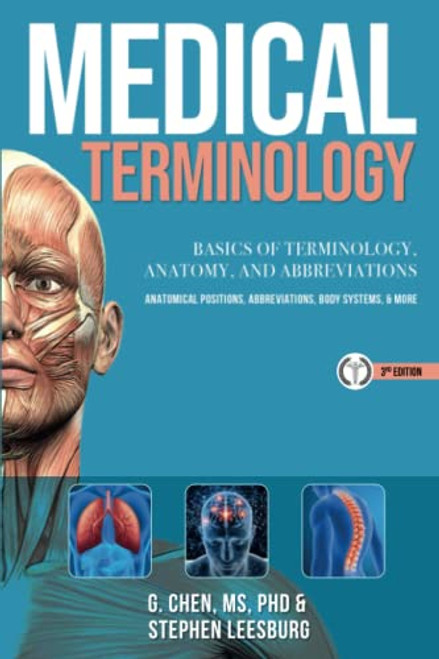Medical Terminology and Anatomy for ICD-10 Coding integrates expanded anatomy, physiology, and pharmacology coverage with the latest medical terminology you need to correctly code in ICD-10. The ICD-10-CM classification system serves as the structure for organizing diseases and disorders, with carefully drawn, well-labeled illustrations to help you visualize the associated anatomy. ICD-10 coding guidelines and notes, along with electronic medical records and integrated exercises are interspersed throughout the text. A robust Evolve site includes games, activities, and animations to reinforce learning.
- Medical terminology specifically tailored to ICD-10-CM and ICD-10-PCS guidelines supply you with an excellent foundation for learning the medical terminology related to ICD-10-CM.
- Learn all the anatomy and physiology necessary to be able to understand medical reports and code accurately in ICD-10-CM/PCS.
- Pathology terms organized by ICD-10 disease and disorder categories let you learn terms in the same order they are presented in the coding manual.
- Guideline Alert! boxes highlight ICD-10-PCS coding information when relevant to medical terminology.
- Special Notes boxes present ICD-10 features that affect your understanding of the terminology presented.
- Root operation tables illustrate the root operations in PCS and their associated suffixes.
- Body Part key provides a complete list of body parts and how they should be coded in ICD-10.
- Pathology and procedure terminology tables list the word parts for each term, along with the definition so you become familiar with prefixes, suffixes, and combining forms.
- Exercises interspersed throughout the text encourage you to practice and learn as you move through the material.
- Be Careful! boxes warn you about similar and potentially confusing word parts and medical terms.
- Games and activities on accompanying Evolve website offer an easily accessible source for extra interactive practice and learning.
- Electronic medical record format illustrates the appearance of electronic records now being used in many healthcare settings.
- NEW! Pharmacology in each body system and a Pharmacology Basics appendix help you recognize drugs and medications in medical reports.
- NEW! More than 50 new images bring terminology to life.
- NEW! Additional procedural terms supply a more complete picture of the number and kind of procedures you will encounter on medical reports.
- NEW! Normal Lab Values appendix familiarizes you with normal and abnormal lab values so you know when to search a medical record for possible additional diagnoses.
- NEW! Tablet and mobile-optimized Evolve activities offer an easily accessible source for extra interactive practice and learning.











